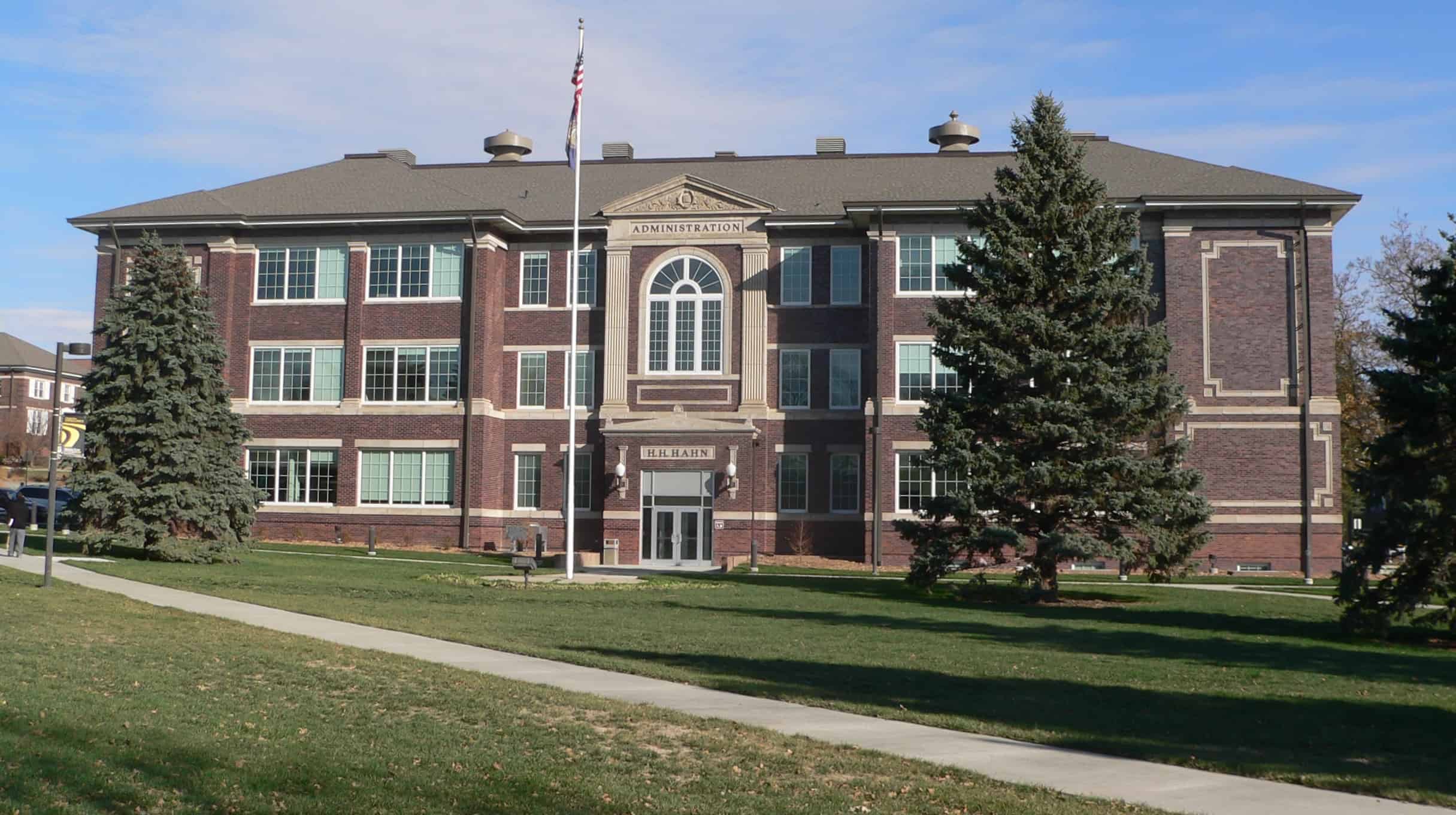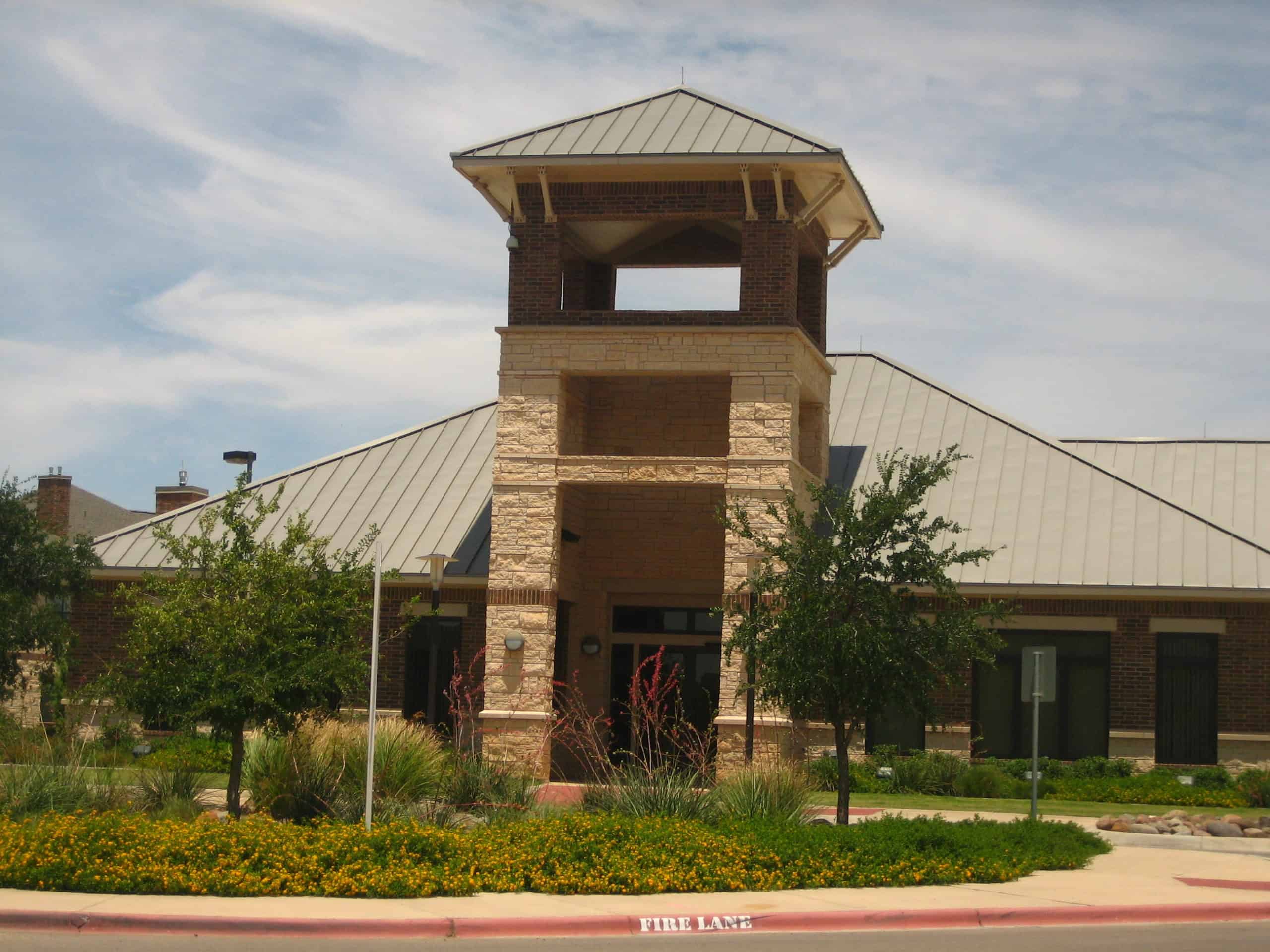The Most Affordable Online Master's Programs 2024
For many people in the current U.S. workforce, one thing is certain: if a bachelor's degree is what it takes to start a career, then a master's degree is the key to advancing that career.
Find Your School in 5 Minutes or Less
Many schools have rolling admissions, which means you can start a program in a few weeks!
Unfortunately, within many fields, capable employees find themselves prevented from progressing professionally because they lack a master's degree.
This isn't to say that such individuals lack experience or necessary technical skills; however, many employers believe that employees with master's degrees give their company something of an edge in the field. A master's degree holder is more likely to possess a certain level of discipline, added expertise, and invaluable skills.
If you're already neck-deep in a full-time job or have other personal responsibilities, it may be difficult to hit the pause button to earn your master's degree. Fortunately, masters' are more accessible now than ever before.
Through easy-to-use online formats, they're offered by more universities nationwide than ever before. These programs afford unprecedented flexibility and convenience, ultimately redefining the true college experience for millions of students across the country.
Before enrolling, make sure to see if the degree program you're interested in functions fully online or operates in a hybrid format.
Online master's programs rank according to each school's average graduate student tuition for in-state students as reported by the National Center for Education Statistics. According to Learning House, more than 78% of virtual students enroll at a school within 100 miles of their place of residence; therefore, our list displays in-state rather than out-of-state tuition.
Online Master's Programs That Might Interest You
Learn about start dates, transferring credits, availability of financial aid, and more by contacting the universities below.The Most Affordable Online Colleges Offering Master's Degrees
2024

1. North Carolina State University
Average Graduate Student Tuition (In-State): $1,170
Master's programs are available in full-time and part-time formats. Many programs also offer online components or are fully online, providing flexibility. On-campus programs typically take 1-2 years to complete.
Requirements for admission vary by department but generally include a bachelor's degree from an accredited institution, official transcripts, test scores (GRE/GMAT), letters of recommendation, CV/resume, and statement of purpose. Minimum GPA is usually 3.0.
Many departments offer graduate teaching and research assistantships, which provide tuition assistance and a stipend in exchange for teaching or research duties. Competitive candidates have a 3.5+ GPA. NC State provides access to state-of-the-art facilities like research labs, computing resources, makerspaces, libraries, and more to support graduate study and research.
On-campus students can access healthcare, wellness resources, academic support, housing, dining options, and over 700 student clubs and organizations. Based in Raleigh, NC State allows students to benefit from a growing tech and research hub with opportunities and resources.
2. Columbia Southern University
Average Graduate Student Tuition (In-State): $4,155
Columbia Southern University offers several online master's degree programs including an MBA, Master of Public Administration, Master of Science in Criminal Justice, and Master of Science in Emergency Services Management. .
All programs are offered 100% online with no campus requirement providing scheduling flexibility for working professionals. Students can complete a master's degree in as little as 12-18 months by taking 2-3 courses per 10-week term, with six terms per year. Minimum admissions requirements include a bachelor's degree from an accredited university, 2.5 GPA, and for the MBA at least 24 credits of undergraduate business courses.
Columbia Southern University is regionally accredited by the Southern Association of Colleges and Schools Commission on Colleges. Several masters programs have additional specialized accreditation. The degree programs focus on applying skills and knowledge to positively impact students' careers and emphasize practicality, flexibility and affordability.
Online support services like academic advising, library services, career services and technical support are provided to support distance students. Columbia Southern University is ranked among the top online universities by U.S. News and World Report and has a long history of serving military and adult student populations.
3. Aspen University
Average Graduate Student Tuition (In-State): $4,500
Aspen University offers several online master's degrees including Master of Business Administration (MBA), Master of Science in Nursing (MSN), Master of Arts in Psychology and Counseling (MAPC), Master of Science in Information Technology (MSIT), and Master of Education (MEd). All programs at Aspen are offered 100% online through their interactive learning platform, allowing students to complete coursework on their own schedules. The average completion time for a master's degree at Aspen is 2 years by taking one 5-week course at a time. Minimum admission requirements include a bachelor's degree from an accredited university with a 2.0 GPA. Aspen University has regional accreditation from WASC Senior College and University Commission. They highlight small class sizes, affordable tuition, and degree programs aligned to high demand fields like business, nursing, computer science, and psychology. Support services are provided online and include academic advising, access to digital library resources, career services, and technical support. Aspen also offers flexible payment options, scholarships, and financial aid resources to U.S. students who qualify.
4. Fort Hays State University
Average Graduate Student Tuition (In-State): $4,503
Located in the heart of Kansas, Fort Hays State comes in as the . Fort Hays enables students to attend classes and earn their in a convenient online format. FHSU believes that high-quality education should be accessible to people from all walks of life. To that end, the virtual college affords flexibility and convenience to all of its students. Classes operate on a rolling semester so students can complete courses in accordance with their schedules. While many schools offer online degrees, what truly sets FHSU apart is its consistent presence among the U.S. News and World Report's best online master's programs. The school offers over 200 online degrees, with 60 different master's degrees--a few of which include the master's in psychology, business administration, nursing, education, and much more.
View Fort Hays State University Online
5. The University of Arkansas at Little Rock
Average Graduate Student Tuition (In-State): $4,800
The University of Arkansas at Little Rock has been devoted to advancing society and providing quality education to students since its founding in 1927. The school is known to provide ample internship and marketing opportunities for its students, a facet that should definitely be considered by any career-focused, master's seeking student. The school offers a variety of online programs in the arts, business, education, information technology, the social sciences, health, engineering, communications, and the natural sciences. All in all, these aspects make the University of Arkansas at Little Rock a highly desirable option for aspiring students anywhere.
View the University of Arkansas at Little Rock Online
6. Wayne State College
Average Graduate Student Tuition (In-State): $5,472
Located in the rural town of Wayne, Nebraska, our number three listing is a school that has strengthened its online programs in remarkable ways. The school is most well-known for its online Master's degree program in Business Administration (MBA), Education (MSE), Organizational Management (MSOM), and over 25 other online master's programs. The online master's program is taught by the same faculty that teach on-campus, meaning the quality of education is consistent and held to the same high standard across the board. WSC's online systems use Blackboard to help facilitate classroom interactions. Through this system, students are able to keep in touch with instructors and fellow students while staying on top of their coursework.
View Wayne State College Online
7. The University of Texas of the Permian Basin
Average Graduate Student Tuition (In-State): $6,727
At #7 on our list is the only university named after a geological formation: one of the world's richest mineral deposits from the Permian geologic period. Home to more than 7,000 students and a faculty of 250 teachers, professors, and, this school sits in a region of huge economic growth. UTPB ranks as one of the top 5 public universities in Texas for students employed one year after graduation--a stunning achievement in today's competitive job markets. This quality of education extends into the school's online programs as well. UTPB offers over 45 online graduate programs in educational leadership, special education, business administration, accounting, public administration, and kinesiology. Classes are typically delivered in an eight-week term, allowing students to go through their classes at a faster pace and graduate sooner.
View the University of Texas of the Permian Basin Online
8. Amberton University
Average Graduate Student Tuition (In-State): $6,875
Amberton University is a fully accredited institution that has been committed to furthering education and encouraging student aspirations since its founding in 1971. The school operates a wide variety of online degree programs that push the boundaries of virtual learning, a few of which include the Master of Arts in Professional Counseling, the Master of Business Administration in Accounting, International Business, or Strategic Leadership, the Master of Science in Managerial Science, and so much more. As an institution, this school holds accreditation from the Southern Association of Colleges & Schools Commission on Colleges to award both bachelor's and master's degrees.
View Amberton University Online
9. Southeast Missouri State University
Average Graduate Student Tuition (In-State): $6,957
As a comprehensive university, Southeast Missouri State University offers more than 75 graduate programs. Located on the banks of the Mississippi River, Southeast is located in Cape Girardeau, the largest city between St. Louis and Memphis. Nearly 12,000 students call this university home, making it the ideal size for students to take advantage of a vibrant student community and critical learning opportunities. 100% of all majors have internships and experiential learning options. Southeast Online recognizes that non-traditional students can't always attend classes in the same way other students can. To that end, Southeast has optimized its online programs with flexibility in mind. With more than 15 online programs, students are able to take advantage of this convenience and get ahead in their careers.
View Southeast Missouri State University Online
10. American Public University
Average Graduate State Tuition (In-State): $7,050
American Public University was founded in 1991 at the dawn of the digital revolution with the intent of establishing a straightforward virtual learning environment for students across the nation. As an institution, it is dedicated to providing highly comprehensive graduate-level education to students seeking advancement in their respective fields. APU provides 45 different online master's degrees to choose from, a few of which include the Nursing MSN, the Healthcare Administration Master of Science, the Entrepreneurship Master of Sciences, the Criminal Justice Master of Arts, and much more. With an APU master's degree earned through hard work, commitment, and determination, you're sure to succeed.
11. Midway University
Average Graduate State Tuition (In-State): $7,350
Midway offers online master's degrees in Business Administration (MBA), Nursing, Education, and Healthcare Administration. The online master's programs are delivered entirely online through Midway's Canvas learning management system. No campus visits are required. Most master's can be completed in 2 years or less with full-time study. Part-time plans allow up to 5 years for completion.
Applicants need a bachelor's degree from an accredited college, 2.5 GPA, resume, essay, and professional references. GRE scores are not required. Midway University is regionally accredited by the Southern Association of Colleges and Schools Commission on Colleges. The business and nursing master's hold specialized accreditation. Online students get access to academic advising, library resources, technical support, career services, and tutoring. Instructors are a mix of full-time Midway faculty and adjuncts with professional experience in their field.
12. East Carolina University
Average Graduate State Tuition (In-State): $7,622
ECU offers over 40 online masters degrees including programs in education, health sciences, business, technology, biology, and more.All programs are offered fully online through ECU's Distance Education and Learning Technology Applications (DELTA) unit. No campus visits are required.
Most online masters degrees can be completed in 2 years or less of full-time study. Part-time options allow up to 6 years for completion. Applicants need a bachelors degree from a regionally accredited institution, transcripts, resume, letters of recommendation, and potentially GRE scores. GPA requirements vary by program.
ECU is regionally accredited by the Southern Association of Colleges and Schools Commission on Colleges (SACSCOC). Several programs have additional specialized accreditation. Online students get access to academic advising, library services, technical support, military student services, and more. Courses are taught by ECU professors from each department. Students work with faculty program coordinators.
13. Liberty University
Average Graduate State Tuition (In-State): $8,405
Liberty offers over 150 online master's degrees spanning fields like business, counseling, education, healthcare, theology, and more. All master's programs are offered fully online through Liberty's online learning platform. No campus residency is required. Most online master's can be completed in 1.5-2 years of full-time study. Part-time plans allow up to 5 years.
Applicants need a bachelor's degree, 2.5 GPA, official transcripts, resume, essay, and letters of recommendation. GRE/GMAT may be required. Liberty University is regionally accredited by the Southern Association of Colleges and Schools Commission on Colleges. Several programs have specialized accreditation. Online resources include academic advising, technical support, library services, career services, military support, and spiritual development resources. Courses are taught by both full-time Liberty faculty and adjuncts with practical experience in their field.
14. Lamar University
Average Graduate State Tuition (In-State): $8,411
Lamar offers over 30 online master's degrees including programs in business, education, nursing, engineering, and arts and sciences. Online programs are delivered through Lamar's online learning platform with no on-campus requirements. Courses use asynchronous teaching methods. Most online master's can be completed in 1-2 years with full-time enrollment. Part-time plans allow up to 5 years for completion.
Applicants need a bachelor's degree from an accredited school, 2.75 GPA, official transcripts, letters of recommendation, and potentially GRE scores. Lamar University is regionally accredited by the Southern Association of Colleges and Schools Commission on Colleges.
Several programs have specialized accreditation. Online students get access to advising, technical support, library services, career development resources, tutoring, and more. Courses are taught by Lamar professors and qualified adjuncts experienced in their field.
15. Western Governors University
Average Graduate State Tuition (In-State): $8,444
Degrees Offered - WGU offers online master's degrees in business, IT, teacher education, nursing, and healthcare management. The teachers college provides multiple master's pathways.
Format - All programs follow an online competency-based education model with asynchronous courses. There are no campus residency requirements.
Time to Complete - Master's students can move through courses and assessments at their own pace. Average time to graduate ranges from 1-2 years.
Application Requirements - Applicants need a bachelor's degree from an accredited university, 2.5 GPA, resume, admission interview. No standardized test scores required.
Accreditation - WGU holds regional accreditation from the Northwest Commission on Colleges and Universities. Several programs have additional specialized accreditation.
Support Services - Online resources include student mentors, course instructors, program faculty, career services, library access, and alumni network.
Faculty - WGU uses a mix of full-time faculty and qualified industry practitioners to teach and develop curriculum.
16. Colorado State University
Average Graduate State Tuition (In-State): $9000
CSU offers over 45 online master's degrees spanning subject areas like education, engineering, business, healthcare, natural resources, agriculture, and more. Online programs are offered through CSU Online and do not have any on-campus requirements. Courses use asynchronous teaching methods.
Full-time students can complete most master's degrees in 2 years or less. Part-time options allow up to 6 years for completion. Applicants need a bachelor's degree from an accredited institution, 2.75 GPA, test scores (GRE, GMAT), letters of recommendation, resume, and potentially prerequisites.
CSU is regionally accredited by the Higher Learning Commission. Many programs have specialized accreditation as well.
Online students get access to advising, technical support, library services, career support, student groups, and other resources.
Courses are taught by CSU professors and subject matter experts. Online and campus students get the same faculty.
17. Oklahoma State University
Average Graduate State Tuition (In-State): $9,092
OSU offers over 70 online master's degrees in fields like business, engineering, education, aviation, fire protection, and more.
Online programs are delivered through OSU's Online platform which provides asynchronous online courses without campus requirements. Most online master's degrees can be completed in 2-3 years through full-time study. Part-time plans allow up to 6 years.
Applicants need a bachelor's degree from an accredited institution, 2.5 GPA, transcripts, letters of recommendation, resume, and potentially GRE scores. OSU has regional accreditation from the Higher Learning Commission. Several programs have additional specialized accreditation. Online students get access to libraries, academic advising, technical support, career services, discounts on software, and more. Courses are taught by OSU faculty from each department. Students work with graduate advisor coordinators.
18. Wilmington University
Average Graduate State Tuition (In-State): $9,276
Wilmington offers over 35 online master's degrees in fields like business, criminal justice, education, healthcare, information technology, and social work. All online master's programs are offered 100% online through Wilmington's College of Online and Adult Studies. No campus visits are required.
Full-time students can complete an online master's degree in as little as 12-18 months. Part-time plans allow up to 5 years.
Application Requirements - Applicants need a bachelor's degree from an accredited college, 2.5 GPA, resume, essay, and professional reference. GRE scores are not required.
Wilmington University is regionally accredited by the Middle States Commission on Higher Education. Some programs have specialized accreditation. Online students get access to advising, library services, career development, tutoring, student organizations, and IT support. Courses are taught by a mix of full-time professors and industry expert adjuncts.
19. Purdue University Online
Average Graduate State Tuition (In-State): $10,352
Purdue offers over 15 online master's degrees in fields like engineering, education, management, technology, and more through Purdue Online. Online master's programs are delivered via Purdue's online learning management system with no on-campus requirements. They use asynchronous teaching methods.
With full-time enrollment, most online master's degrees can be completed within 2 years. Part-time plans allow up to 6 years.
Applicants need a bachelor's degree, 3.0 GPA, GRE/GMAT test scores, letters of recommendation, personal statement, and potential prerequisites.
Purdue has regional accreditation from the Higher Learning Commission. Many programs have additional specialized accreditation. Online students get access to advising, library resources, career services, tutoring, Purdue's alumni network, and other student resources. Courses are taught by Purdue professors; online students get the same faculty as on-campus.
20. Arizona State University
Average Graduate State Tuition (In-State): $10,372
ASU offers over 50 online master's degrees spanning fields like engineering, education, sustainability, business, healthcare, and more. Online programs are offered through ASU Online with no on-campus requirements. Courses use asynchronous teaching methods.
With full-time study, most ASU online master's can be completed in 12-24 months. Part-time plans allow up to 6 years.
Applicants need a bachelor's degree, 3.0 GPA, GRE/GMAT scores (waived for certain programs), letters of recommendation, resume, and prerequisites.
ASU is regionally accredited by the Higher Learning Commission. Many programs have specialized accreditation as well.
Online students get access to academic advising, career services, library resources, tutoring, ASU's alumni network, and other student supports. Courses are taught by ASU faculty from each department; same faculty as on-campus.
Resources:








